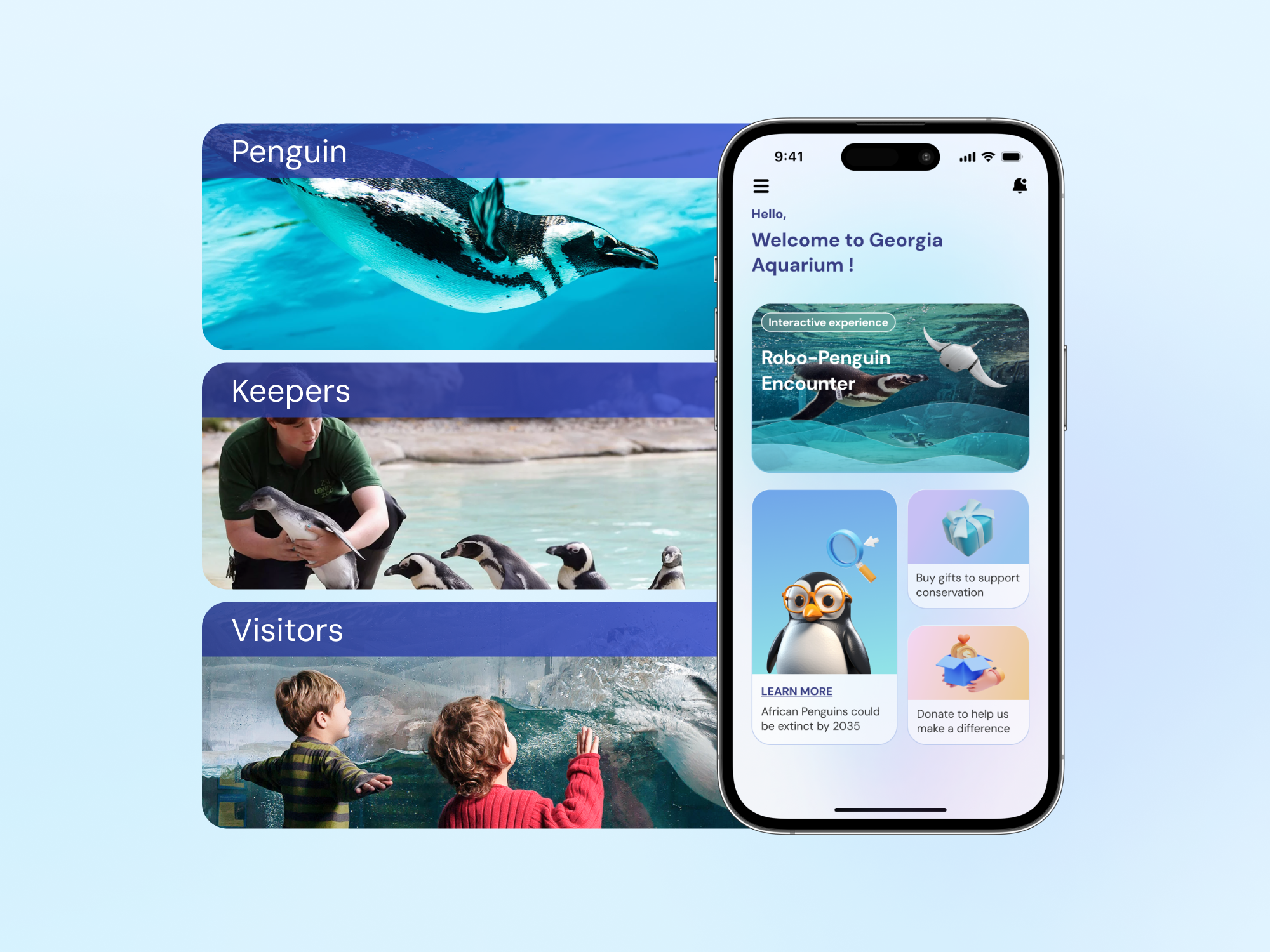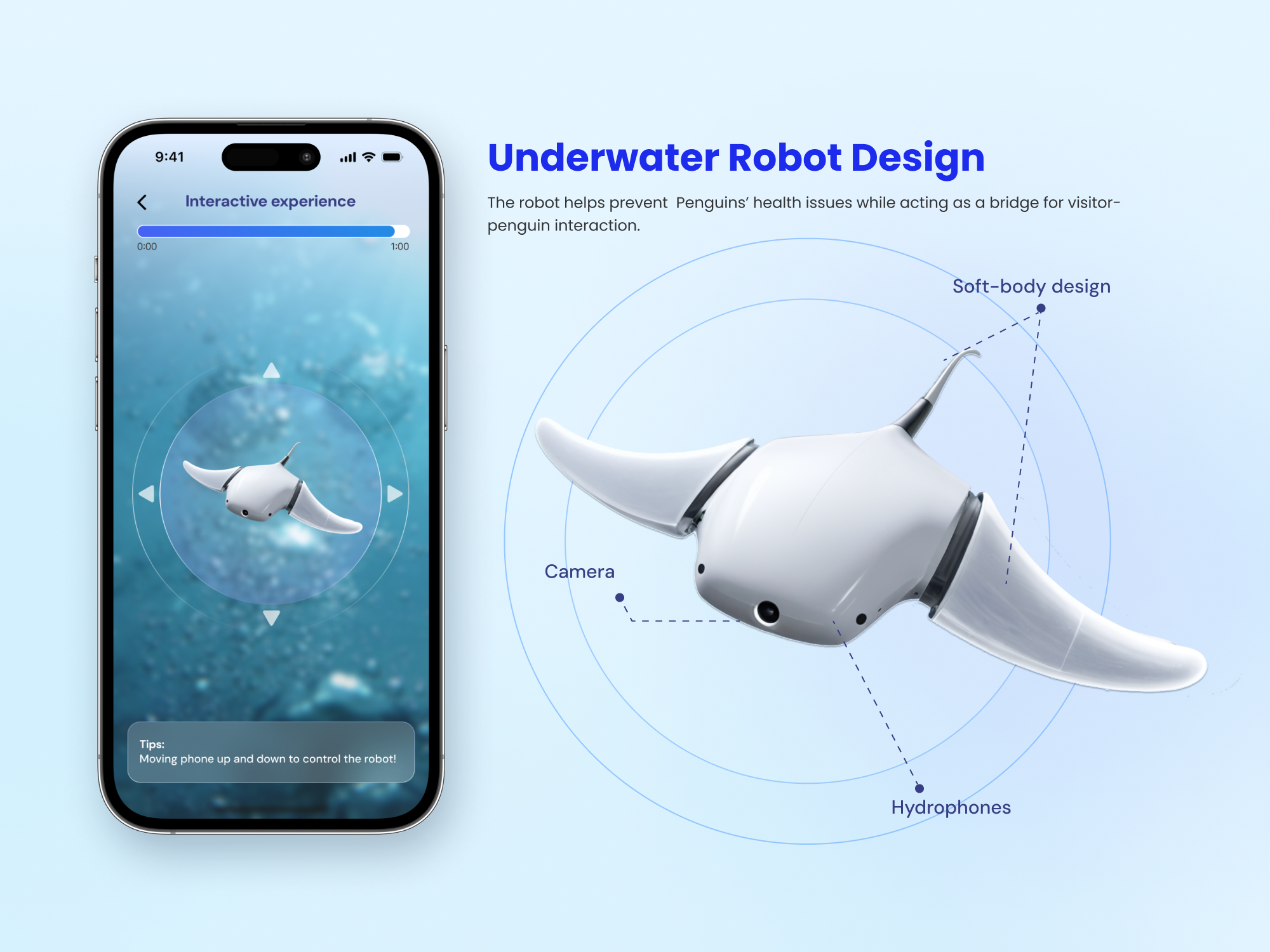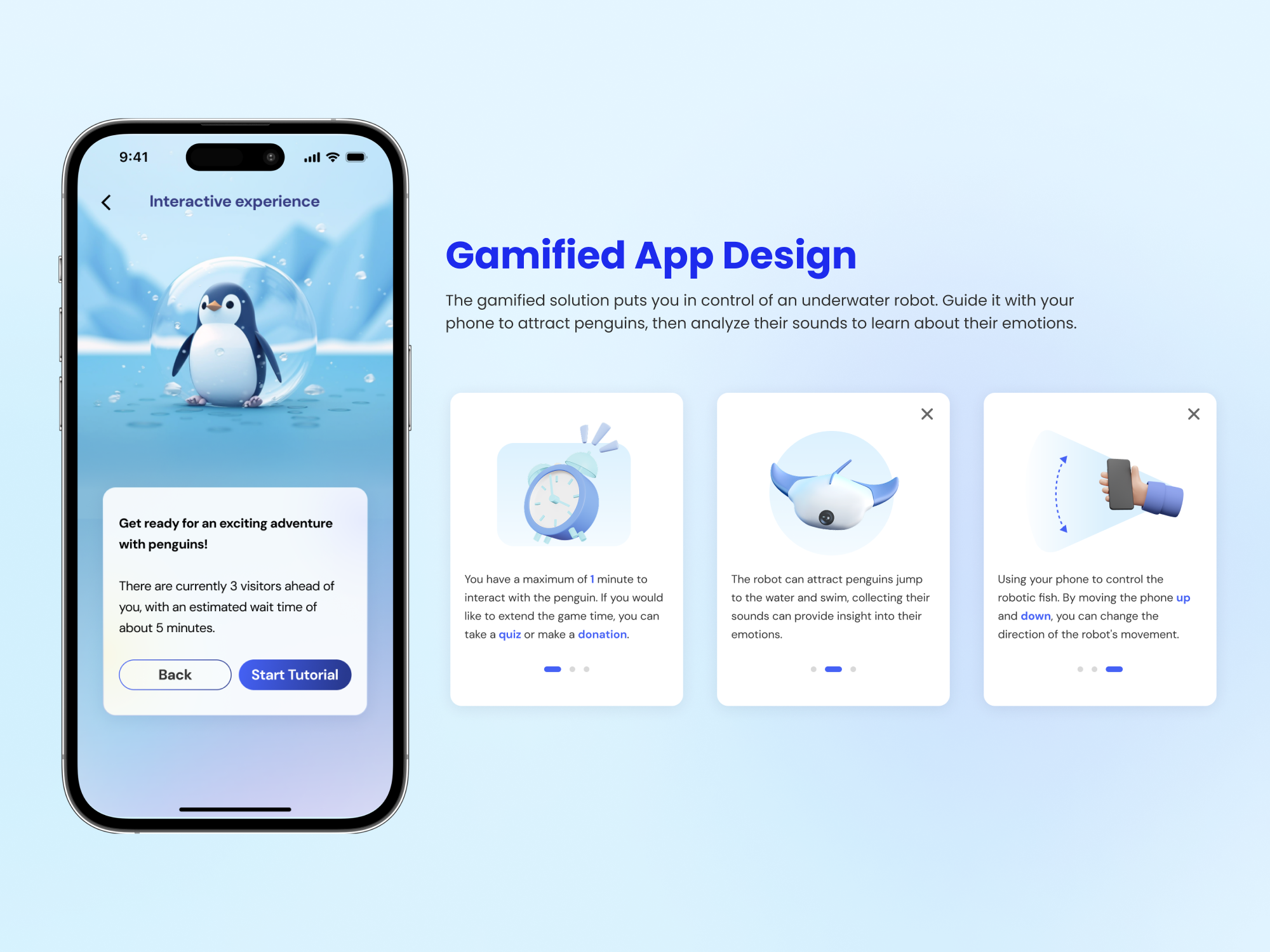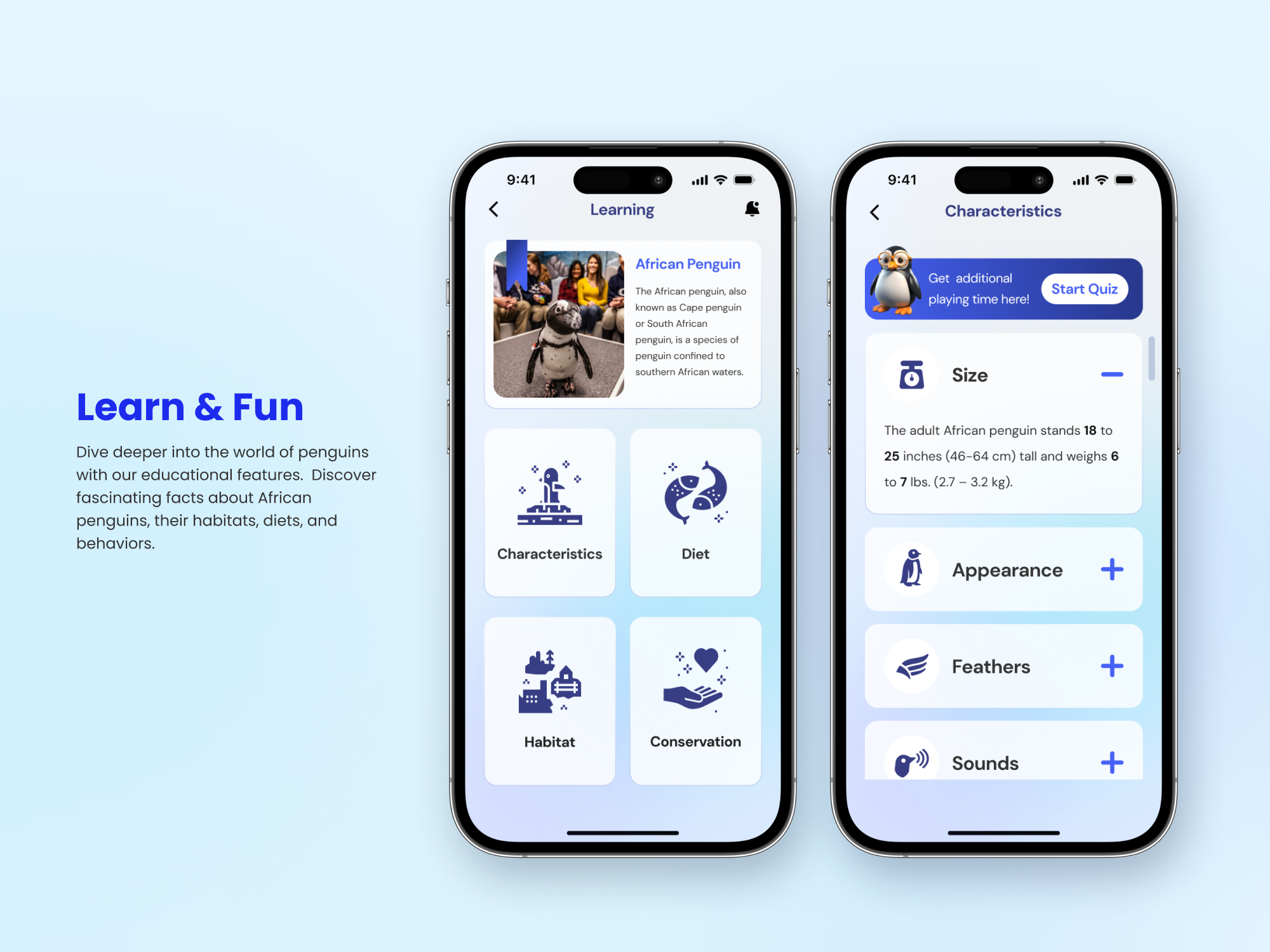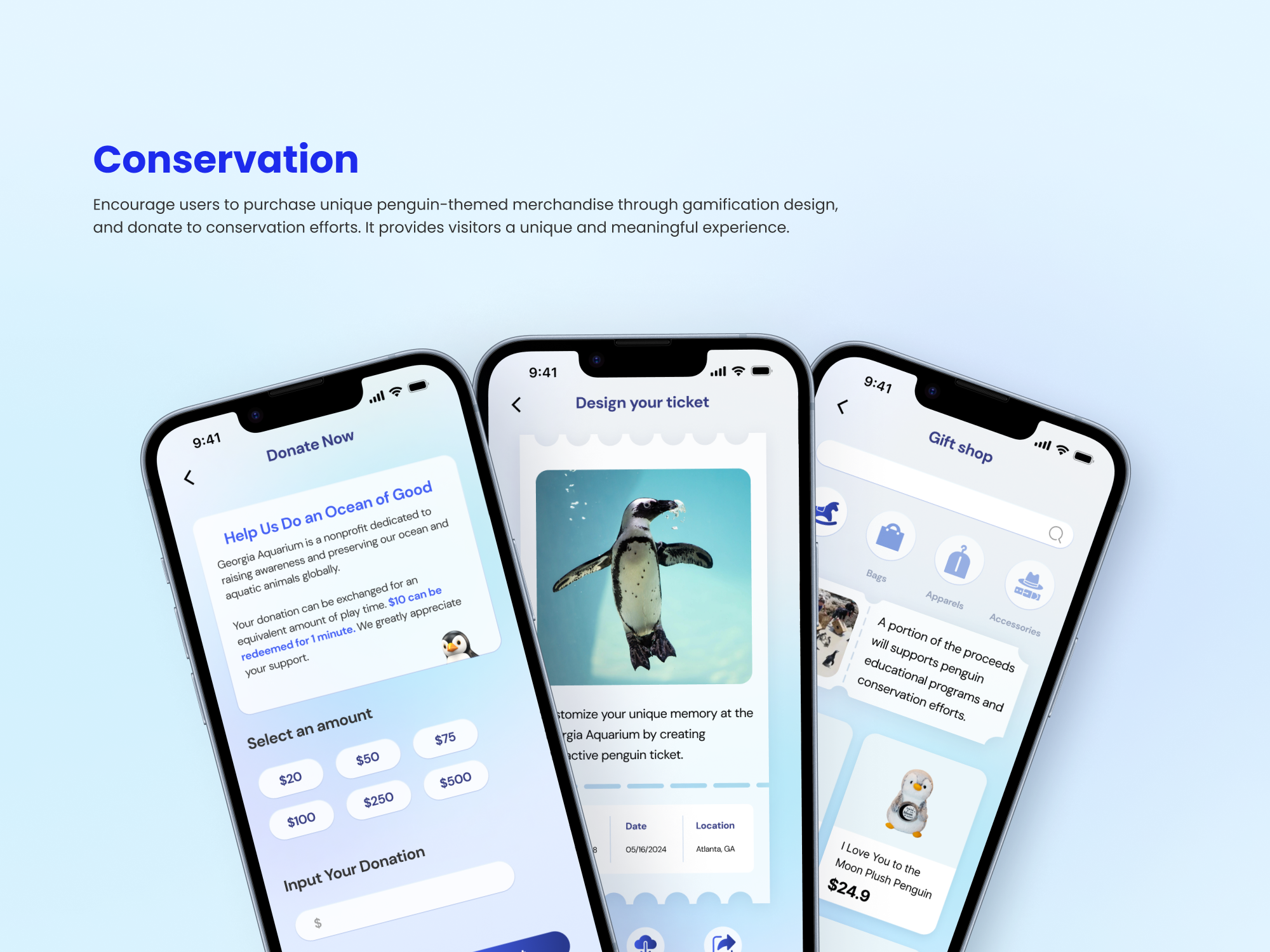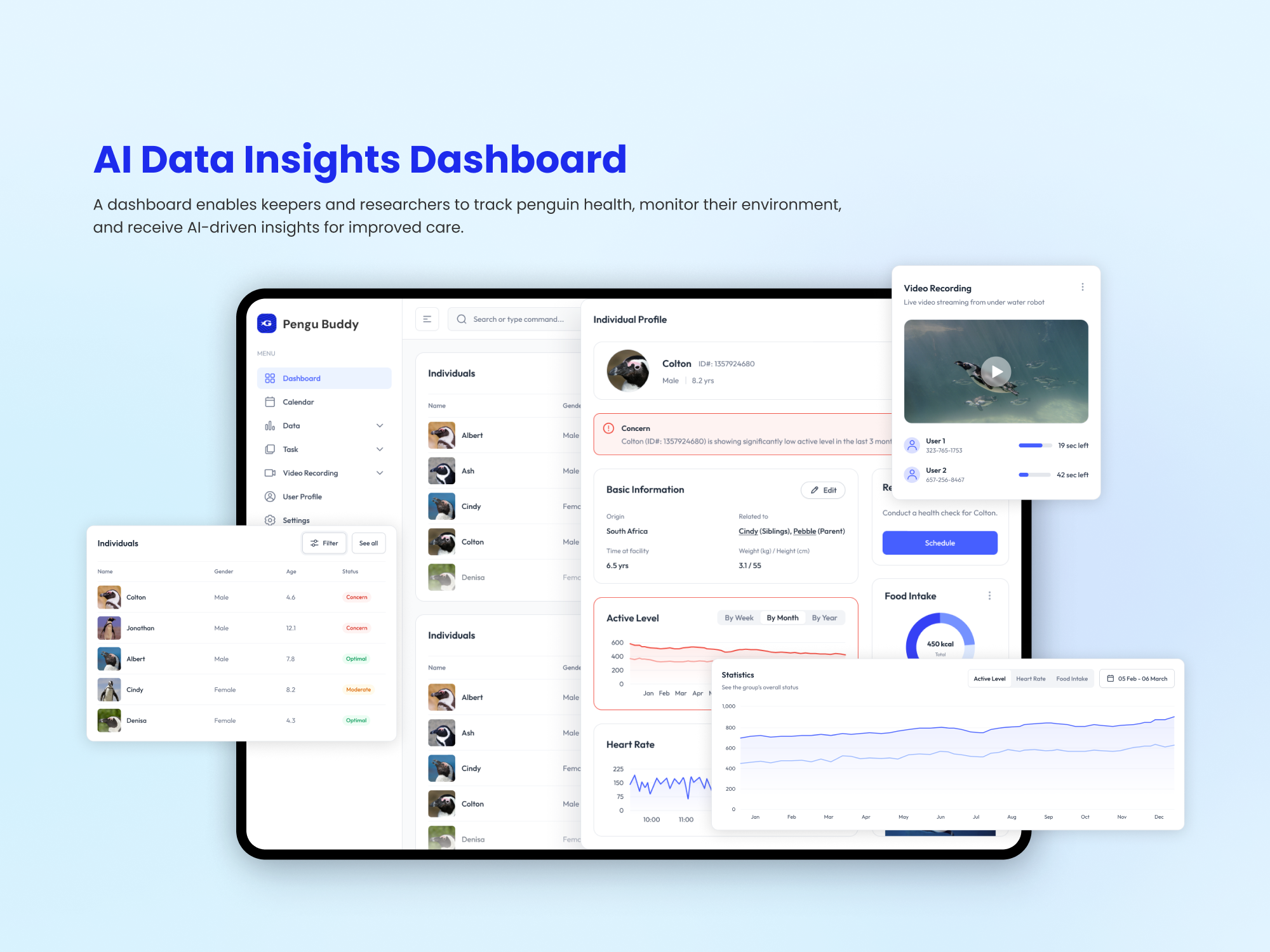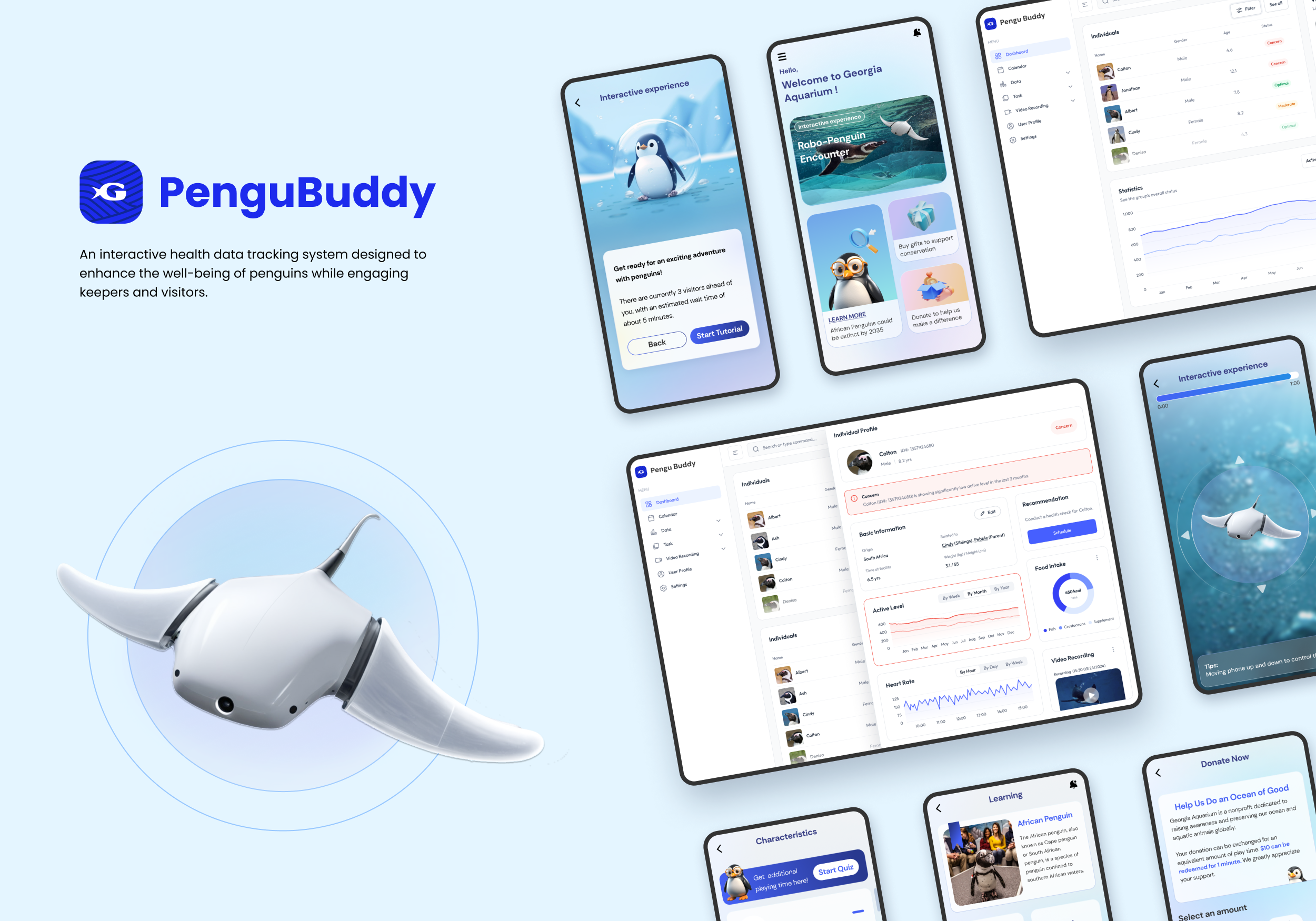2025

PenguBuddy
Entrant Company
HERE Design Studio
Category
User Experience (UX) - Gamification UX
Client's Name
Georgia Aquarium
Country / Region:
United States
PenguBuddy is an interactive health data tracking system designed to enhance the well-being of penguins while engaging keepers and visitors. The system integrates an underwater robot and a mobile app to monitor and analyze penguin behavior and health metrics in real time. Developed in collaboration with Georgia Aquarium and Georgia Tech’s Animal-Computer Interaction (ACI) Lab, the project aims to bridge technology and animal care, providing valuable insights for researchers and caretakers while creating an interactive educational experience for visitors.
Zoo penguins often experience mood and behavior changes due to environmental and habitual shifts, which can lead to depression, reduced appetite, and decreased activity. Through field research, we discovered that keepers use low-tech enrichment toys to support penguins’ mental well-being and primarily monitor their health through daily observations or annual checkups. However, these methods lack real-time tracking for individual penguins.
The design solution draws inspiration from penguins' natural play behaviors and environmental enrichment strategies. By leveraging robotic and AI technology, we created a system that not only tracks penguin activity data but also fosters engaging interactions between penguins and humans.
A key innovation is an underwater robot that serves as both an interactive toy and a data collection tool. Encouraging penguins to swim, it helps prevent physical and mental health issues while capturing acoustic data and video for monitoring. It also enhances visitor interaction with the animals. A companion mobile app allows visitors to control the robot, creating immersive interactions while offering educational content, conservation donation options, and penguin-themed merchandise. Additionally, a web platform enables keepers and researchers to track penguin health, monitor their environment, and receive AI-driven insights for improved care.
PenguBuddy significantly improves the quality of life for zoo penguins while offering visitors a unique and meaningful experience. By addressing both ethical and logistical challenges in animal care, this innovative solution has the potential to drive positive social impact in wildlife conservation and public engagement.
Credits
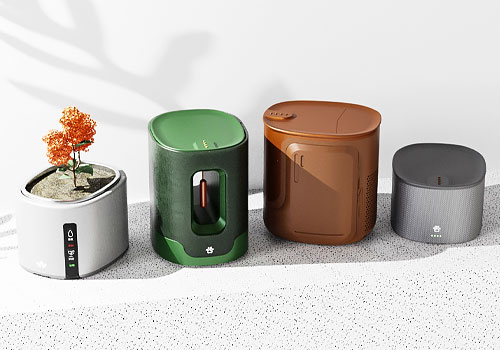
Entrant Company
Zixuan Zhao, Yan Yang, Liu Wang , Rui Wan, Yihao Peng, Guangdong University of Technology, NCIAE, HBAU, SSPU, NJUPT
Category
Digital, Electronic Devices & Accessories - Audio & Video Devices
Country / Region
China

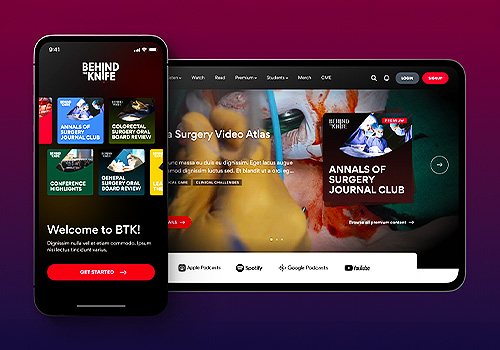
Entrant Company
Designli
Category
User Experience (UX) - Product UX
Country / Region
United States


Entrant Company
LUCKMEEY
Category
Clothing & Accessories - Underwear & Lingerie
Country / Region
China


Entrant Company
DR Corporation Limited
Category
Jewelry - Hair Accessories
Country / Region
China

